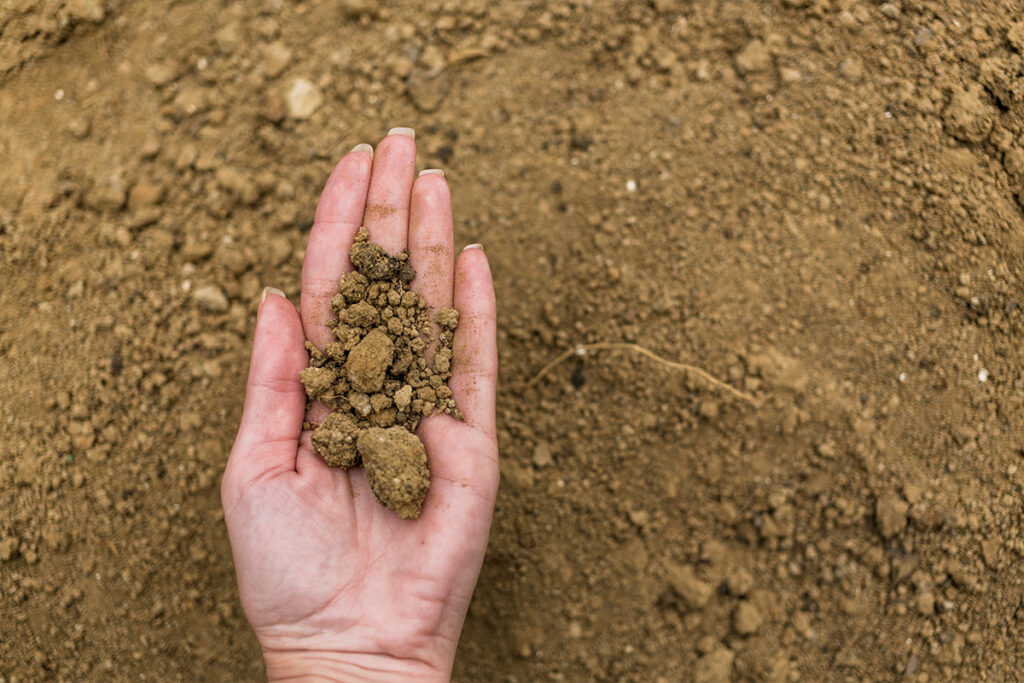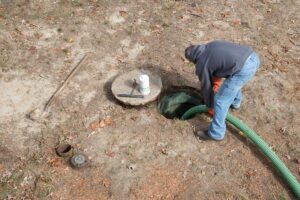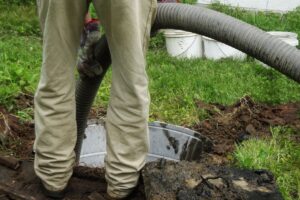The residential septic system plays a crucial role in treating and disposing sewage and wastewater. When considering how to properly maintain the septic tank, many homeowners in Salem, Florence, Eugene, and nearby areas don’t realize the impact surrounding soil can have on this system.
Everything from soil texture to density can hamper the tank’s ability to perform its job correctly. Without proper considerations for soil type, homeowners may experience unexpected septic malfunctions, repairs, or complete system failures. In this blog post, we’ll examine how the nearby soil affects the septic system and what septic owners can do to prevent potential issues.
What type of Soil is good for Septic Tanks?
According to septic tank pumping experts in Salem, the best soil type for septic systems includes a mixture of coarse, sandy, granular, and silty materials. Professionals in the septic industry often refer to this combination as “loamy soil.”
Loamy soil is ideal for most residential septic units because it strikes a healthy balance between drainage and absorption. The steady absorption gives the tank enough time to treat wastewater, while the consistent drainage helps prevent sewage backups or groundwater contamination.
Which Characteristics of Soil Impact Septic Systems?
Different types of soil also have distinct characteristics, including:
Soil Permeability
According to the leading septic contractors in Eugene, soil permeability refers to the extent to which wastewater or sewage can transmit or pass through the soil. High permeability means effluent from the septic system can easily percolate into the nearby soil for dispersion and treatment, which helps your system process sewage and prevents the buildup of contaminants or pathogens.
Soil Density
Density is the compactness of the soil. As the soil becomes more compact, it also becomes less porous. Leading septic experts in Florence reveal that soil compaction or impermeability can reduce the septic system’s ability to absorb, filter, or drain water, increasing the risk of sewage backups or system failures.
Absorption Capacity
Absorption capacity is how well the soil can manage the amount of wastewater from your home. It should absorb and hold the waste without getting too soggy. According to the top septic companies in Eugene, the best soil mixes keep wastewater in place so that microbes can break it down before it harms groundwater or nearby water sources.
Depth-to-water Table
The depth-to-water table indicates how far the bottom of the leach field is from the highest point of the natural groundwater level. Top septic experts in Salem reveal that this distance is paramount for preventing groundwater contamination and minimizing complete system failure.
If the water table is too high, it can saturate the soil, stopping microbes from treating waste properly. If it’s too low, the soil won’t have adequate time to break down household waste.
Soil pH
The pH balance of soil can also affect the overall performance and functioning of your septic system. Soil types that are either too acidic or too alkaline soils can disrupt the lifespan of helpful microorganisms in your tank. Top septic contractors in Florence reveal that these microorganisms are crucial in treating effluent and preventing waste from polluting the groundwater supply.
WE ARE READY 24 HOURS TO HELP YOU.
How Can I Help My Septic System Work For My Type of Soil?
Due to the vital role that the surrounding soil plays in the performance and health of your septic system, it is imperative to contact septic or drain cleaning professionals from reliable firms like Best Septic Tank Pumping to seek help with your property. Our licensed septic contractor will perform the following duties:
Soil Testing
Soil tests can help determine soil texture, absorption capacity, permeability, and other relevant properties. For instance, our technician will conduct a soil percolation test to measure the rate at which your soil absorbs sewage and wastewater. Top septic companies in Salem state that this assessment(also known as the “perc test”) reveals how effectively your system can treat household sewage without posing environmental concerns.
Design Modifications
If the nearby soil type isn’t ideal, our septic technician may suggest design modifications to safeguard your property. For instance, if your property sits on extremely permeable or sandy soil, our septic professional may have to create a larger drain field to disperse drainage and ensure that your septic system has enough time for effluent treatment.
Top septic companies in Eugene also suggest that if your residence is on clay soil, you may have to schedule an appointment with a credible company like Best Septic Tank Pumping to design necessary modifications, such as aerobic or raised mound systems, to prevent clogs, blockages or wastewater retention.
Regular Septic Maintenance
The Environmental Protection Agency (EPA) recommends contacting a reliable septic or drain cleaning business to pump your tank and inspect the drain field for potential problems. Routine septic inspection, pumping, repairs, and maintenance by a credible service provider like Best Septic Tank Pumping are essential for preserving the overall health and lifespan of your septic system. Leading septic tank pumping specialists in Florence reveals that regular upkeep also protects the environment and prevents safety hazards or septic emergencies.
Final Takeaway:
Soil type can greatly affect the performance, functioning, and health of your septic system. While you can’t possibly change the soil type of your area, septic experts at Best Septic Tank Pumping can help ensure that your system works best for your location. With years of expertise and a dedication to quality, we take great satisfaction in providing our beloved clients with premium service.
Our friendly and skilled team of professionals is always ready to answer any questions and provide guidance and advice on maintaining a healthy septic system in Salem, Florence, Eugene, and the surrounding areas. We go above and beyond to ensure each client is happy with our work and receives the top-notch service they deserve.
Contact us at (541)236-5419 to schedule an appointment with our team today.








